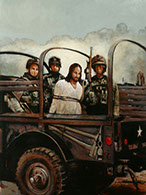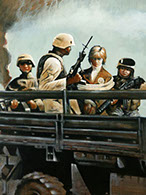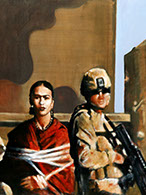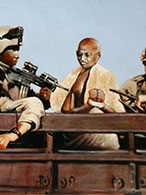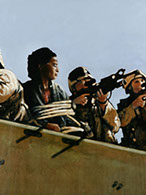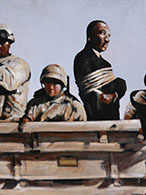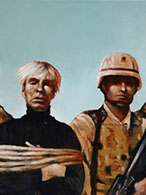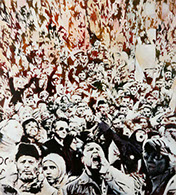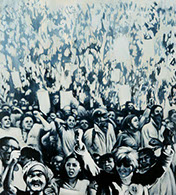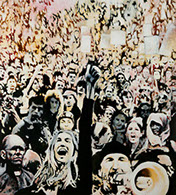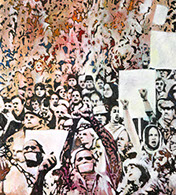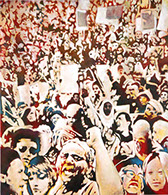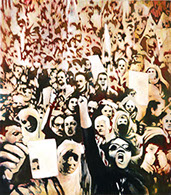Absence of Conscience
2008
Absence of conscience is a comment on the tendency of “super power” to cull societies of culture forces that present resistance. In the process of this cultural culling the main cultural forces that promote civil rights and equality are threatened. The vision is of significant civil rights leaders being captured and taken away by young under informed soldiers that are most likely unaware of the position or importance of the individuals that they are incarcerating. This form of cultural control has been exercised throughout history most recently in countries such as Argentina, Nicaragua, Chile, Poland, China, and South Africa. As we move deeper into the ‘war on terrorism” we are progressively loosing civil rights and our democratic right for free speech and privacy. In these paintings I am asking the question “how would the present super power react to the historical civil rights activists”. It is important to me to represent a broad range of civil rights activists from the common person on a bus, a film celebrity, an artist to political and religious figures. This cross reference is important because I want to illustrate the fact that the fight for civil rights happens on all levels of society and consequently all levels of society are also threatened by this super power mentality . This inclusive vision of social resistance is also reflected in the images of protest.
The protest images are composite images of people protesting the American military actions in Iraq. I sourced images of people from all over the world protesting the “war in Iraq”. Each painting has images from 6 different countries. As in the narrative paintings I wanted to illustrate that there is a broad range of people that are speaking out in defence of basic human rights. This population spans race, class, gender and age. The global resistance to the American foreign policy has created one of the largest global communities of protest ever but it falls on deaf ears in Washington. This denial of the people’s voice runs parallel to the culling of civil rights leaders and undermines the very core values of a democratic system. In the face of this denial and culling of culture it is necessary for people to use their voices and speak out about how they are affected by increasingly inaccessible political forces.
“It is simply not enough to be an artist, unengaged. If you live in political times....then art is political. And all art that is not consciously so partakes of the messiness of politics, if only to flee it.”Paul Monette













